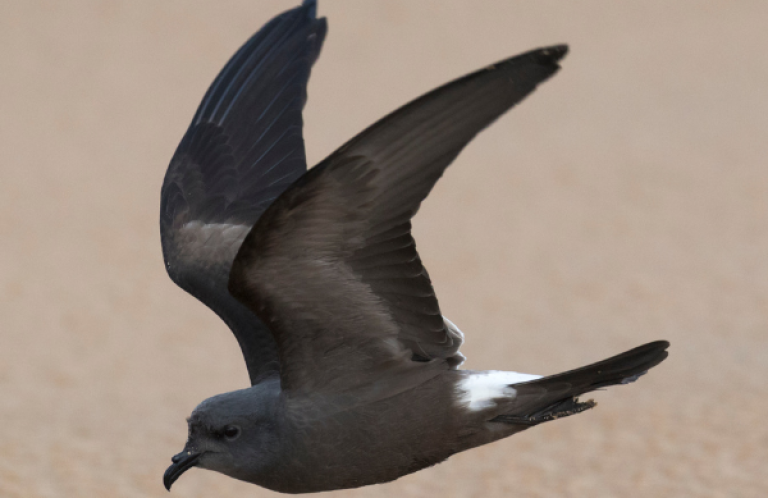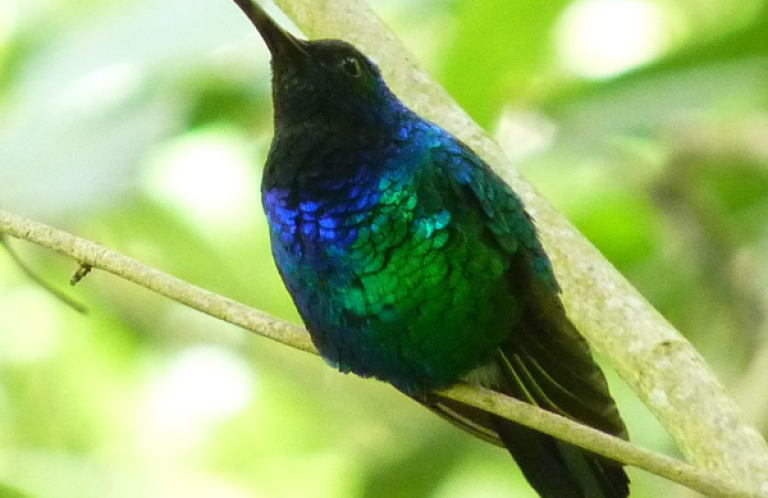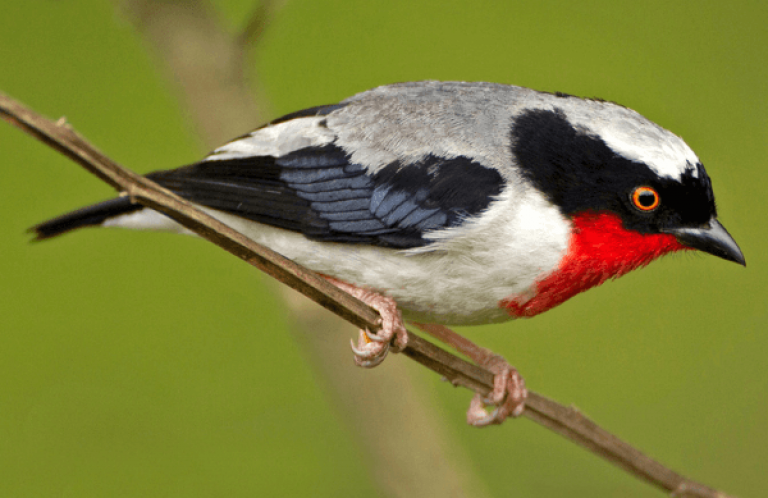Bird Protection Concerns Remain in Controversial Icebreaker Wind Project's Next Stage
Media Contact: Jordan Rutter, ABC Director of Public Relations, 202-888-7472 | jerutter@abcbirds.org
Expert Contact: Joel Merriman, ABC Director of Bird-Smart Wind Energy, 202-888-7471 | jmerriman@abcbirds.org
Expert Contact: Kim Kaufman, Black Swamp Bird Observatory Executive Director, 419-898-4070 | kimkaufman@bsbo.org

A globally significant population of Red-breasted Mergansers, along with many other bird species, could be at risk from Lake Erie's first proposed offshore wind energy project. Photo by Abi Warner/Shutterstock
(Oak Harbor, Ohio, August 16, 2019) The Icebreaker Wind project, proposed to the Ohio Power Siting Board (OPSB), would place a six-turbine pilot wind energy facility offshore of Cleveland, Ohio. If approved, this would be the first offshore facility in the Great Lakes and only the second offshore facility in the United States.
The site selected by the developer, the Central Basin of Lake Erie, is a National Audubon Society-designated globally significant Important Bird Area in recognition of the millions of birds that use this area, including migratory species such as the Kirtland's Warbler and wintering waterfowl including the Red-breasted Merganser. Despite dire concerns regarding the high risk of wind turbine-caused mortality and other impacts on birds, the proposal has moved forward over the last decade as the developer has attempted to win approval of a Certificate of Environmental Compatibility and Public Need (CECPN) from the OPSB.
“Significant and unaddressed concerns remain regarding this project's potential impacts on bird populations,” said Steve Holmer, Vice President of Policy for American Bird Conservancy (ABC). “This is a high-risk, inappropriate location for wind energy development, which is why the project is opposed by ABC and Black Swamp Bird Observatory (BSBO).”
The OPSB, in conjunction with one of its voting members, the Ohio Department of Natural Resources (ODNR), is approaching the case with caution for a number of ecological reasons. First, the science provided by the applicant, which quantifies birds in flight near the proposed site of the turbines, is imperfect and understates the risk. Second, the technology and methods for detecting, identifying, and quantifying bird and bat fatalities resulting from collisions with offshore turbines are in their infancy for pre-construction and currently non-existent for post-construction monitoring. These efforts are inadequate to gather this critically important data.
To mitigate impacts to birds, the OPSB and the ODNR have proposed placing a number of stipulations upon any granting of a CECPN. For almost a year, these stipulations have been the subject of negotiations between Icebreaker Windpower, Inc. (a partnership of the developer and Fred. Olsen Renewables, a wholly owned subsidiary of Norway-based Bonheur ASA) and the OPSB/ODNR. The stipulations were issued in signed consent on May 15, 2019. (One legal participant in the case has refused to sign the stipulations, so there is not yet consent among all parties.)
The OPSB will be conducting a hearing August 20 to address issues related to the CECPN and the stipulations, which would be considered legally binding and enforceable once the CECPN is issued.
ABC and BSBO issued a joint comment to the OPSB on these stipulations on May 29. The comment specifies recommendations to improve upon the inadequate ecological science contained in the stipulations, as well as the mutual ABC and BSBO opposition to the project as a whole.
“Before this experimental project is considered for final approval by OPSB, we have some concerns,” said BSBO Conservation Chair Don Bauman. “We have prepared objections and recommendations that, if heeded, could improve the ecological science being used to evaluate the risk this project poses to birds and bats.”
These recommendations are consistent with ABC's and BSBO's goals for a science-based approach to Bird-Smart Wind Energy development, and they set an important precedent for any potential future offshore wind development.
“On a regional level, all eyes are on the decision-making process for this pilot project,” said Joel Merriman, Director of ABC's Bird-Smart Wind Energy Campaign. “It is critical that we combat the effects of climate change, but we need to ensure that we're not creating new problems for bird populations by building in high-risk areas, or not considering better alternatives such as distributed solar power on Cleveland rooftops, parking lots, and brownfields.”
###
American Bird Conservancy is a nonprofit organization dedicated to conserving birds and their habitats throughout the Americas. With an emphasis on achieving results and working in partnership, we take on the greatest problems facing birds today, innovating and building on rapid advancements in science to halt extinctions, protect habitats, eliminate threats, and build capacity for bird conservation. Find us on abcbirds.org, Facebook, Instagram, and Twitter (@ABCbirds).
Black Swamp Bird Observatory is a 501(c)(3) not-for-profit whose mission is to inspire the appreciation, enjoyment, and conservation of birds and their habitats through research, education, and outreach.


















































